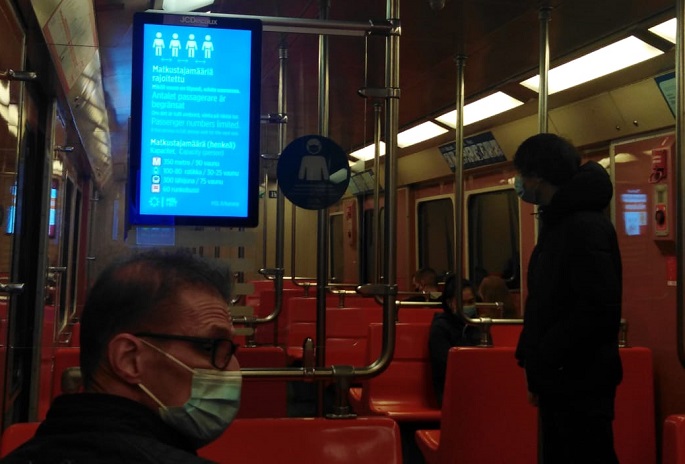Covid-19 pandemic exposes modern society vulnerability
Published : 27 Jul 2021, 01:49
The Covid-19 pandemic has greatly changed lives around the world and Sirkka Heinonen, a professor at the Finland Futures Research Centre at Turku University, is certain that some changes will have a lasting impact on the future beyond the pandemic.
“The greatest lesson we learned from it is that surprises are the new normal,” she told the Daily Finland.
The pandemic came to many, Heinonen says, as a total surprise and the realization that it could happen was a shock even though several studies earlier predicted such a possibility.
“It has exposed the vulnerability of the modern society,” said Heinonen, noting the urgency for changes in the supply chain and the daily routines keeping to new circumstances.
“We need to proactively build a more resilient society. We can survive shocks and crises, even flourish through them, if we can anticipate them in advance and prepare strategies,” she added.
In Finland, futures studies has already become an academic discipline which is, she said , unique in the world. “Countries, cities and companies should have a future strategy on top of the normal urban planning that has a longer time perspective, even a hundred years.”
The strategies need to take into account complex relations between politics, economy, social issues, technological developments, environmental dimension and cultural aspects and not only concentrate on megatrends such as climate change but also watch early weak signals carefully.
This way not only negative impact could be reduced but possible opportunities might also be recognized early, she said.
Additionally, the crisis has made it felt that it is important to think about causal links between human interactions with the nature, in the case of Covid-19 with wild animals.
“People should think of life as an interconnected eco-system with ethical dimension — the place and role of humans inside the nature’s eco-systems,” Heinonen said.
Even though the pandemic had some positive side-effects towards a more sustainable world like less air and road traffic, Heinonen sees a risk of returning to old habits or even an overcompensation once life gets back to normal.
She, therefore, pointed out the need for an immediate action towards a fossil-free world.
“Now is the final moment to crystallize that the future we want is sustainable. We humans will, otherwise, not survive,” Heinonen said.
Many people rediscovered the nature for themselves. Biomimicry — by using technology to simulate the nature’s forms, structures and processes — could emerge as a leading technology for city buildings, she said.
“People compensate for their sense of loneliness, worries, isolation and depression by walking in the green. Nature is a source of health. In Finland, we already have all elements for nurturing urban greenery,” Heinonen added.
Healthcare services might also be planned differently in the future as the pandemic has showed some serious issues which caused mental and physical health problems that must still be taken care of.
Businesses were forced to rethink their strategies and get innovative for survival. Some new everyday life habits like higher attention to hygiene, remote work and living on multiple locations will also probably continue.
“The pandemic stopped us and forced us to think about what is most important in life. For many, family, friends and time allocated to socializing proved invaluable,” Heinonen said, adding that Priorities in society have been greatly changed.


